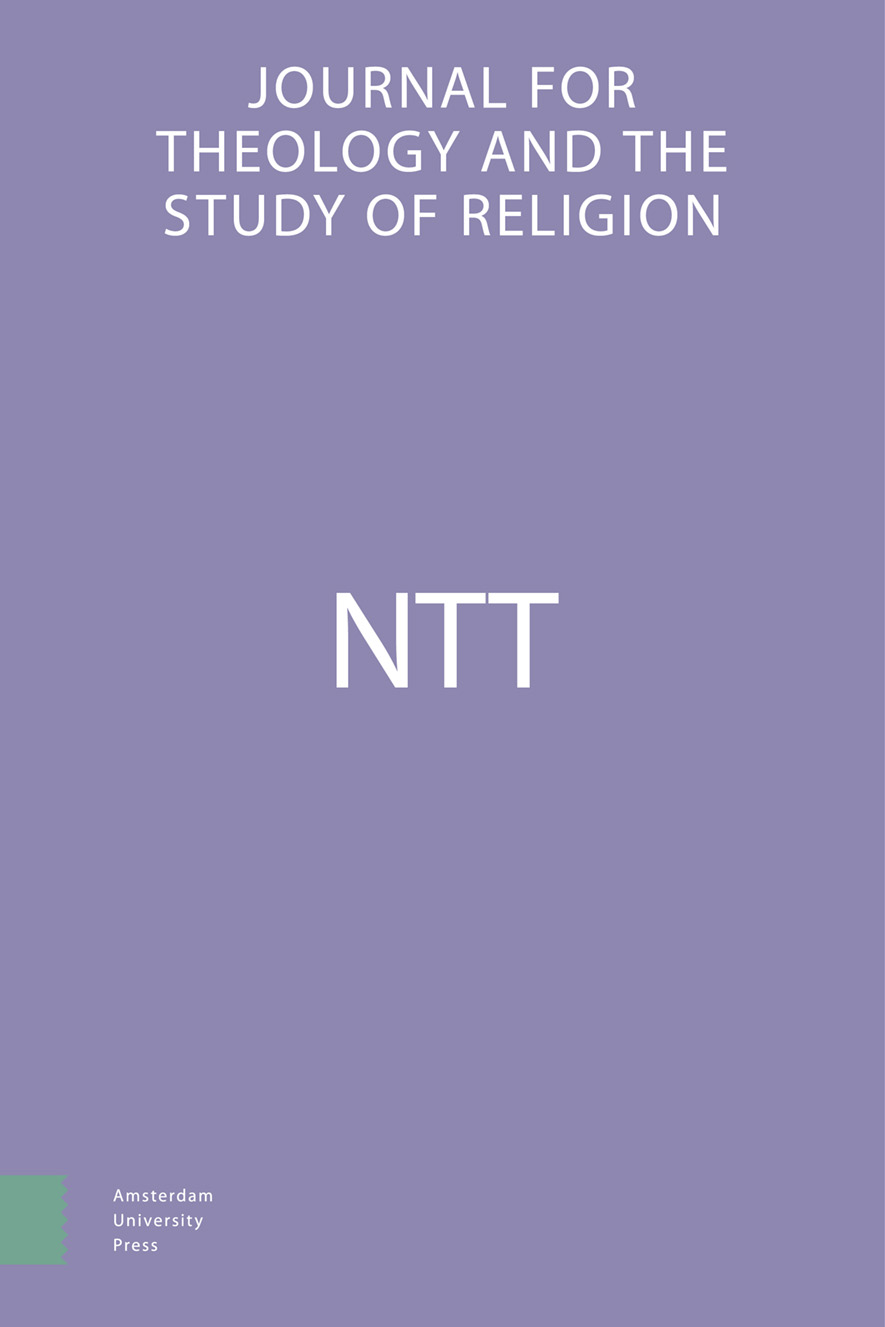- Home
- Publications
- NTT Journal for Theology and the Study of Religion
- Previous Issues
- Volume 60, Issue 2, 2006
NTT Journal for Theology and the Study of Religion - Volume 60, Issue 2, 2006
Volume 60, Issue 2, 2006
-
-
[Can believers act as if there is no God? The discussion on Autonomous Morality in Focus, Kunnen gelovigen handelen ‘alsof er geen god bestaat’? De discussie over autonome moraal scherpgesteld]
More LessAuthor: Patrick LoobuyckAmong religious believers and unbelievers, there is a rather broad consensus on the autonomy of morality: morality is self-existent and can be known and put into practice without God and His Revelation. Believing or not should be morally inconsequent. This conflicts with the trivial proposition that belief in a Christian God is indeed relevant for our acting and our views on morality. This text deals with various possibilities of interdependence between religion and morality. Then we discuss some theological and moral philosophical questions resulting from the proposition that morality is logically independent of God and His commandments.
-
-
-
Why were the 1960s so Religiously Explosive?
More LessAuthor: Hugh McLeodAbstractThe 1960s were a time of dramatic religious change throughout the Western world. These years were religiously explosive because of the convergence of major social changes with new currents of thinking and the impact of specific events, notably the Civil Rights movement, Vietnam War and Vatican II. The social changes included unprecedented affluence, changes in family relationships and especially in the position of women, and the weakening of collective identities, rooted in confessional and ideological sub-cultures. New currents of ideas included a growing political and theological radicalism, culminating in 1968, and increasingly influential concepts of individual human rights.
-
-
-
[Stem en tegenstem in Exodus 24 en 33, Competing Voices in Exodus 24 and 33]
More LessAuthor: Evert van den BergThe book of Exodus is composed of elements originating from different traditions. In this article it is argued that it was not the aim of the composition concerned to harmonise those traditions, but rather to confront them. This position is demonstrated by an analysis of Exodus 24 and 33, where the central question is how man can contact God. Finally it is argued that different Old Testament traditions are recognisable in later Christian traditions.
-
-
-
[Flemish Anabaptism and the printed Text: The Paradigmatic Shift from Orality to Textuality, Het Vlaams doperdom en de gedrukte tekst: over de paradigmatische verschuiving van oraliteit naar tekstualiteit]
More LessAuthor: Marjan BlokThe emergence of the printed Scriptures in the sixteenth century and the increased literacy that accompanied it, necessitated an epistemological shift from an oral to a textual paradigm. Flemish Anabaptist martyrs’ literature grants us a vivid picture of early literacy and its theological consequences. The overlapping nature of orality and textuality serves to clarify both Flemish Anabaptist theology and the religious origins of pluralism. This article briefly explores the epistemological shift produced by the invention of printing and the subsequent increase of literacy. Secondly it seeks to illustrate this shift and its consequences for theology by a brief exploration of Flemish Anabaptist literature and thought.
-
Volumes & issues
-
Volume 79 (2025)
-
Volume 78 (2024)
-
Volume 77 (2023)
-
Volume 76 (2022)
-
Volume 75 (2021)
-
Volume 74 (2020)
-
Volume 73 (2019)
-
Volume 72 (2018)
-
Volume 71 (2017)
-
Volume 70 (2016)
-
Volume 69 (2015)
-
Volume 68 (2014)
-
Volume 67 (2013)
-
Volume 66 (2012)
-
Volume 65 (2011)
-
Volume 64 (2010)
-
Volume 63 (2009)
-
Volume 62 (2008)
-
Volume 61 (2007)
-
Volume 60 (2006)
-
Volume 59 (2005)
-
Volume 58 (2004)
-
Volume 57 (2003)
-
Volume 56 (2002)
-
Volume 55 (2001)
-
Volume 54 (2000)
-
Volume 53 (1999)
-
Volume 52 (1998)
-
Volume 51 (1997)
-
Volume 50 (1996)
-
Volume 49 (1995)
-
Volume 48 (1994)
-
Volume 47 (1993)
-
Volume 46 (1992)
-
Volume 45 (1991)
-
Volume 44 (1990)
-
Volume 43 (1989)
-
Volume 42 (1988)
-
Volume 41 (1987)
-
Volume 40 (1986)
-
Volume 39 (1985)
-
Volume 38 (1984)
-
Volume 37 (1983)
-
Volume 36 (1982)
-
Volume 35 (1981)
-
Volume 34 (1980)
Most Read This Month

Most Cited Most Cited RSS feed
-
-
How to read Philo
Author: D. T. Runia
-
- More Less

